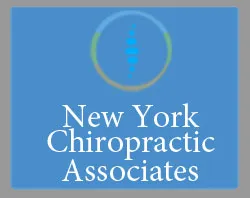- posted: Jul. 19, 2018
Hypothyroidism: Causes and Treatment
Primary Hypothyroidism, or under-active thyroid gland, may cause a wide variety of symptoms and can affect all bodily functions.
Hypothyroidism used to be a laboratory diagnosis. A high TSH blood test signified that one had an underactive thyroid and was placed on synthetic T4 (aka Synthroid). Clinical diagnosis was reserved for people with advanced or severe hypothyroid disease, and even then, if labs were not “abnormal” physicians might have hesitated to treat. Functional medicine physicians are changing this practice by identifying the signs, symptoms, and cause of hypothyroidism early on and starting appropriate treatment.
Common Causes of Hypothyroidism
- Hashimoto’s Thyroiditis, a disease of the thyroid gland where the body’s immune system attacks the gland, is the most common cause. Actually, all autoimmune diseases can lead to hypothyroidism.
- Chronic Inflammatory Disease (in any form) can cause a deficiency of thyroid hormone production, as well as other hormones. This includes heart disease and cancer (which, in my opinion, are inflammatory processes).
- Surgical removal of the thyroid gland or irradiation of the gland requires replacement of thyroid hormone.
- Gluten sensitivity is a common culprit that I am seeing repeatedly in my practice. Patients do not need to have Celiac Disease. Uninterrupted removal of gluten from the diet can show dramatic improvements in thyroid function.
- Post-Infectious periods, Chronic Fatigue Syndrome, and Post-trauma are also very common cause of transient hypothyroidism. This means that with support and healing, the thyroid can be naturally restored to proper function.
Symptoms of Hypothyroidism
Insufficient thyroid hormone causes body functions to slow. Symptoms are subtle and develop gradually. They may be mistaken for depression, especially among older people. Facial expressions become dull, the voice is hoarse and speech is slow, eyelids droop, and the eyes and face becomes puffy. Very common signs of hypothyroidism are:
- Weight gain or inability to lose weight
- Constipation
- Inability to tolerate cold temps or temperature sensitivity in general
- Hair becomes sparse, coarse, and dry; skin becomes coarse, dry, and scaly: thinning of eyebrows
- Muscle cramps, carpal tunnel syndrome, restless leg syndrome have all been linked to low thyroid function
- Early miscarriages (more common than originally thought)
Diagnosis of Hypothyroidism
A physical examination can reveal pale sallow skin; loss of the outer edge of the eyebrows; thin and brittle hair; coarse facial features; brittle nails. Vital signs may reveal slow heart rate, low blood pressure, and low body temperature.
Laboratory tests to determine thyroid function include TSH, T4 test, free T3, reverse T3, and thyroid antibodies. Lab abnormalities that can also be seen are increased cholesterol and anemia.
Functional Treatment of Hypothyroidism
Treatment is always customized for each individual diagnosed with hypothyroidism. It isn’t always simple, and medication isn’t always prescribed immediately. Treatment always starts with trying to identify the cause. That will dictate treatment protocol. Here is a very general
summary of treatment that it is used by functional medicine physicians:
- Vitamin A, Vitamin E, Vitamin D, Zinc, and Selenium are essential for proper glandular function.
- Iodine supplementation is almost always necessary, as most people are iodine deficient.
- Ashwagandha and Guggul extract may aid in the conversion of thyroxine (T4) to triiodothyronine (T3) and may assist in maintaining healthy blood lipid levels.
- Elimination and detoxification diet, with strict emphasis on gluten and soy elimination should always be started. Incorporate sea vegetables, kelp, and fermented foods in the diet, which are all “thyroid friendly” foods.
- Chiropractic care and acupuncture can be helpful for all hormonal imbalances.
